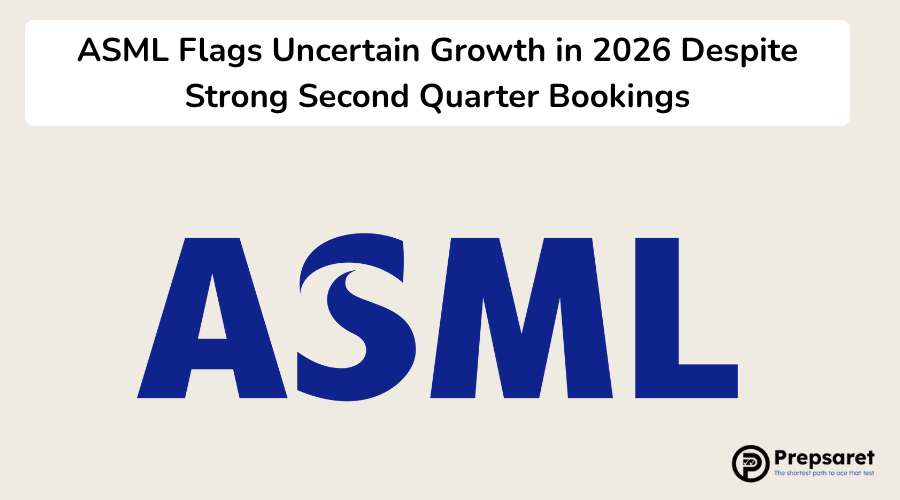ASML, the leading global supplier of semiconductor manufacturing equipment, cautioned on Wednesday that it may not experience growth in 2026. This comes even though its second-quarter bookings surpassed Wall Street projections.
While industry experts had anticipated the latest quarterly results might offer clarity regarding the company’s performance outlook for 2026, ASML signaled that ongoing global instability continues to pose challenges.
Related story: Malaysia Tightens Oversight on U.S.-Made AI Chip Exports
Geopolitical and Economic Turbulence Cast Doubts
According to ASML CEO Christophe Fouquet, rising uncertainties are impacting the company’s ability to offer a confident forecast.
“The level of uncertainty is increasing, mostly due to macroeconomic and geopolitical consideration. And that includes, of course, tariffs,” Fouquet stated in an internal interview shared on ASML’s official website.
He added, “While we still prepare for growth in 2026, we cannot confirm it at this stage.”
Should ASML end up reporting stagnant revenues in 2026, it would mark the first time since 2012 that the company has not posted annual growth—a decade-long streak that may soon come to a pause.
Despite the cautious outlook, some investors remain unfazed. Han Dieperink, chief investment officer at investment firm Aureus, noted he sees continued strength in demand and remains optimistic about the company’s near-term performance.
Strong Bookings Reinforce Near-Term Confidence
The company posted net bookings of €5.54 billion ($6.4 billion) for the second quarter, easily exceeding analysts’ average forecast of €4.44 billion, as reported by market intelligence firm Visible Alpha.
“The second quarter beats from top to bottom,” said Michael Roeg, an analyst at Degroof Petercam, highlighting the growing appetite from producers of chips used in artificial intelligence applications.
ASML’s flagship EUV lithography machines—considered the most sophisticated systems available for printing intricate chip circuits—are crucial in the production of high-performance semiconductors. These machines are essential for manufacturing state-of-the-art chips used in products like Nvidia’s GPUs and Apple’s Macs and iPhones.
While the company navigates complex macroeconomic headwinds and trade tensions, its technological leadership and strong customer demand suggest it remains a cornerstone of the chip-making industry.
Nonetheless, uncertainty over future tariffs and global policy shifts makes it difficult for ASML to offer firm guidance for 2026 at this point.
Read next: Google to Offer Steep Cloud Discounts to U.S. Government Amid Budget Push

